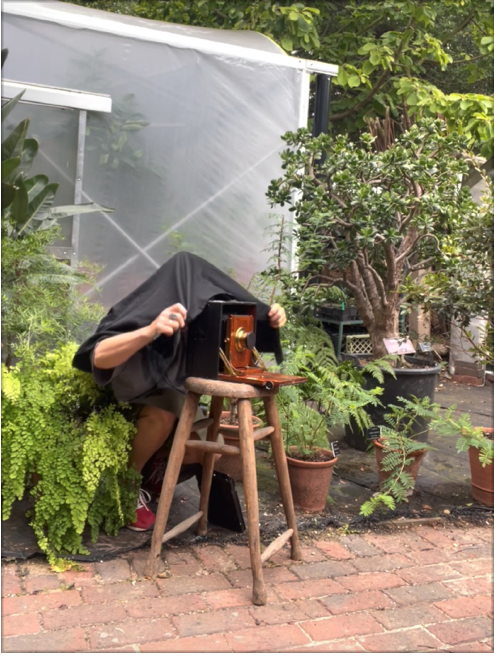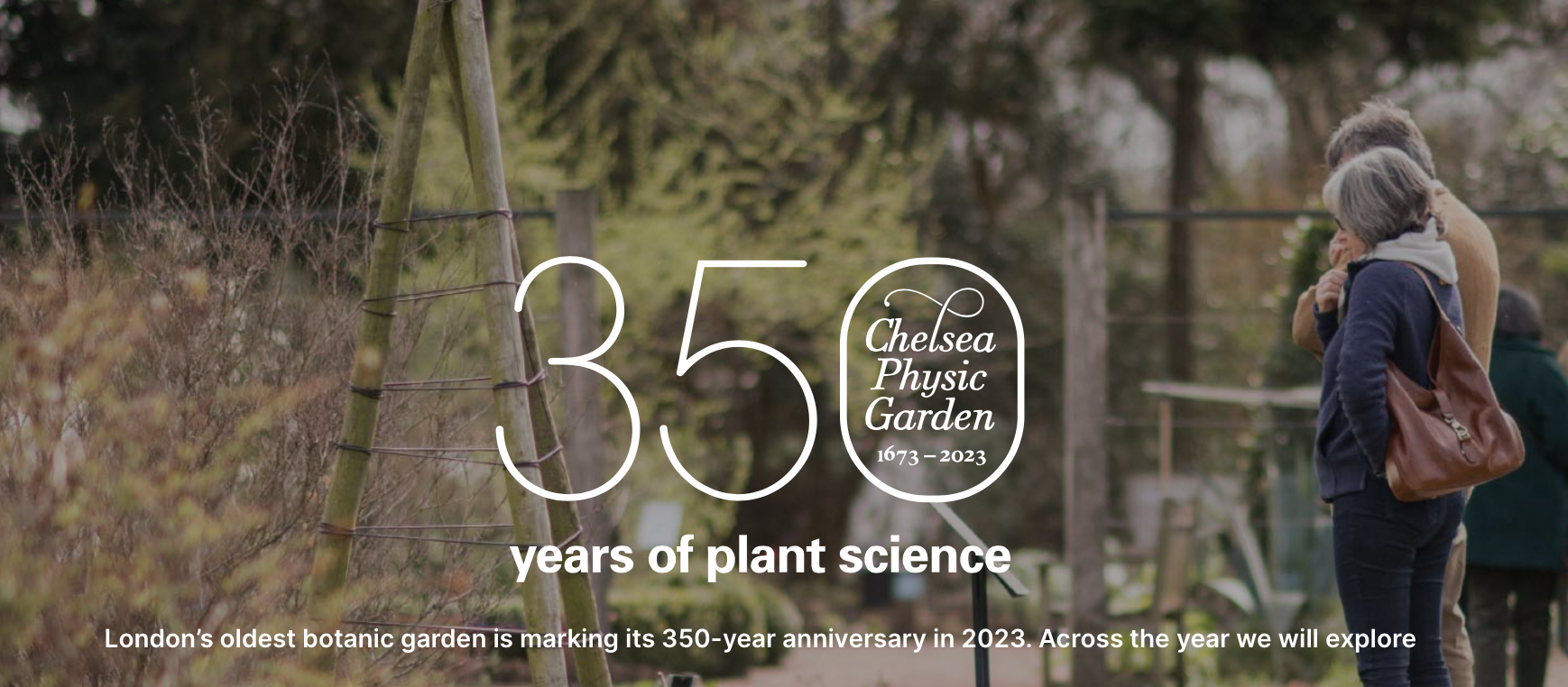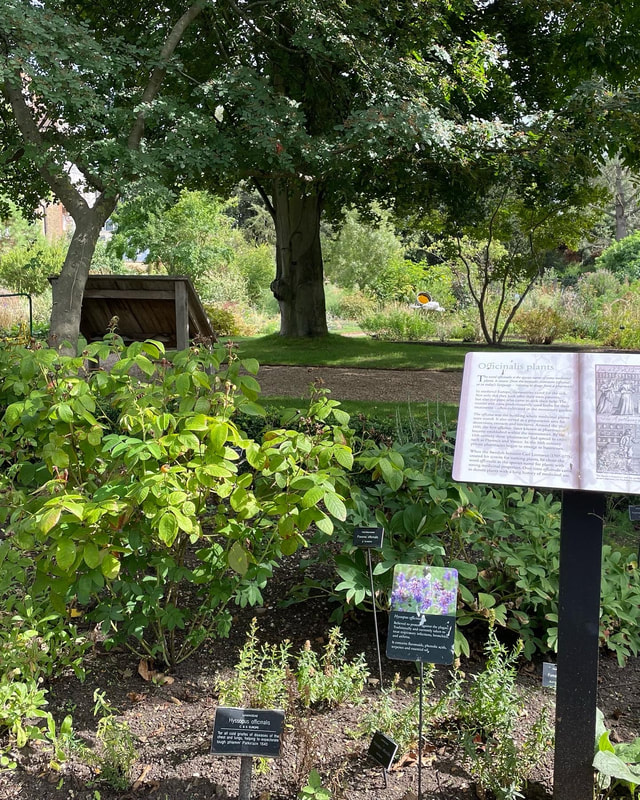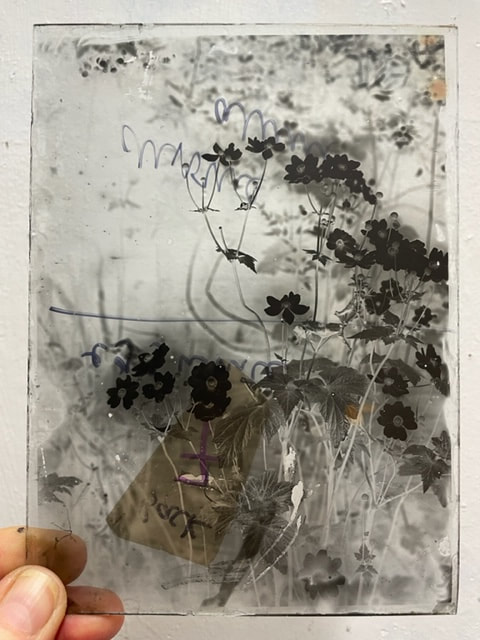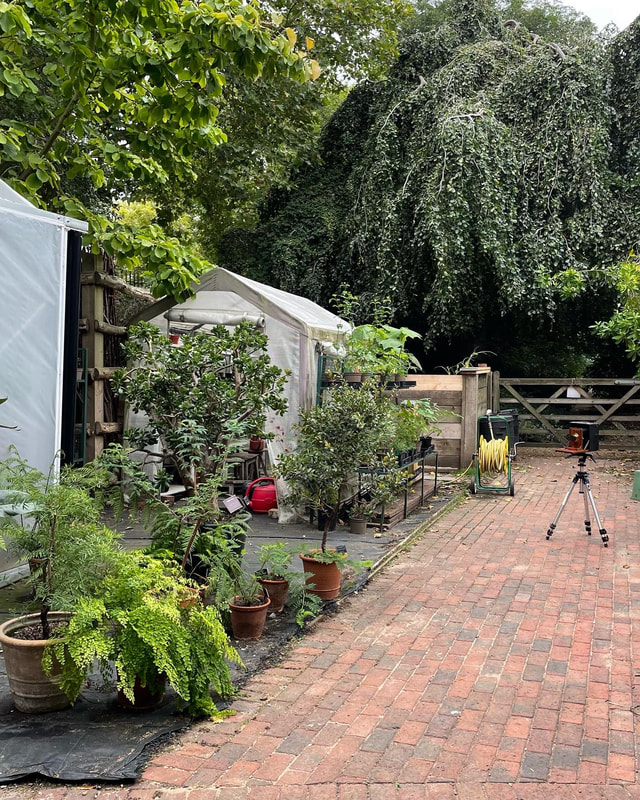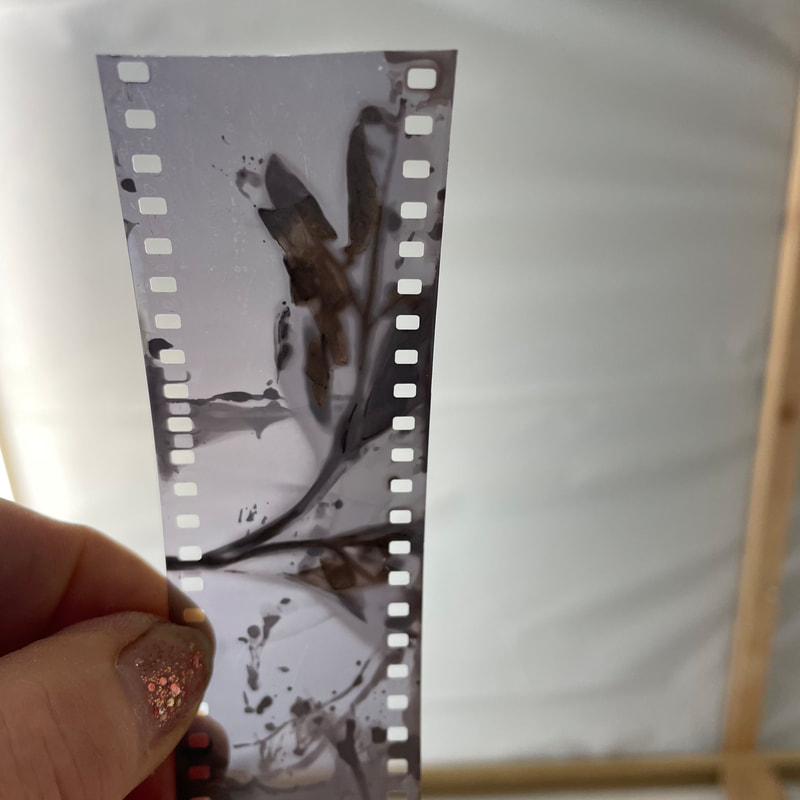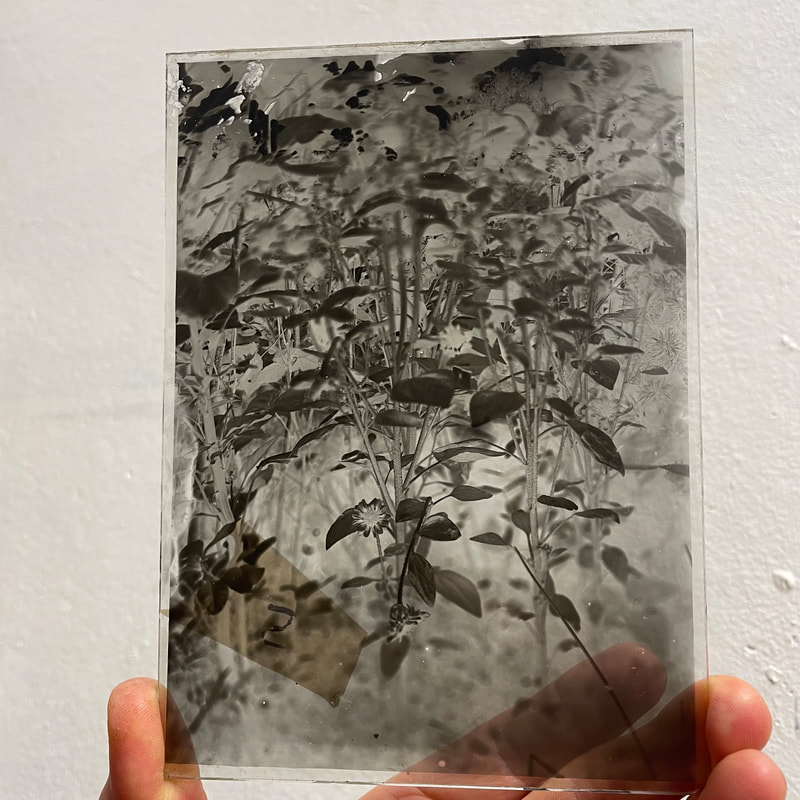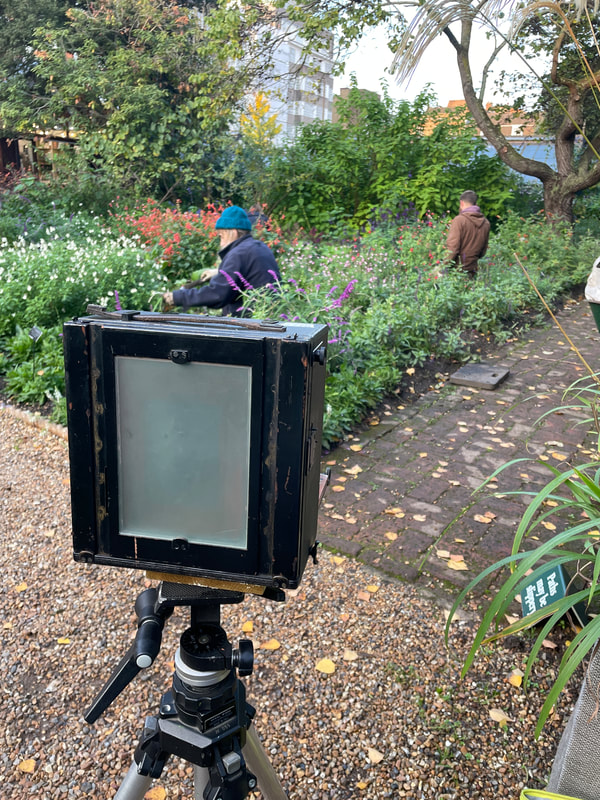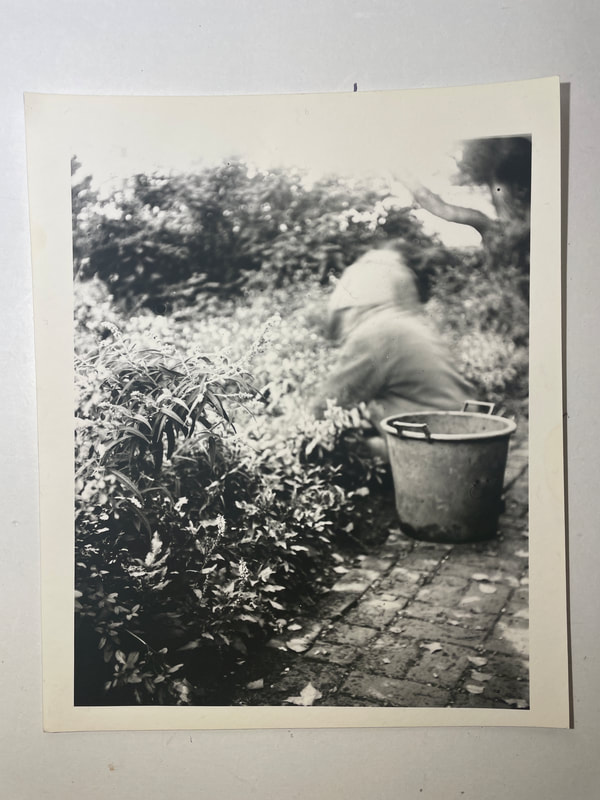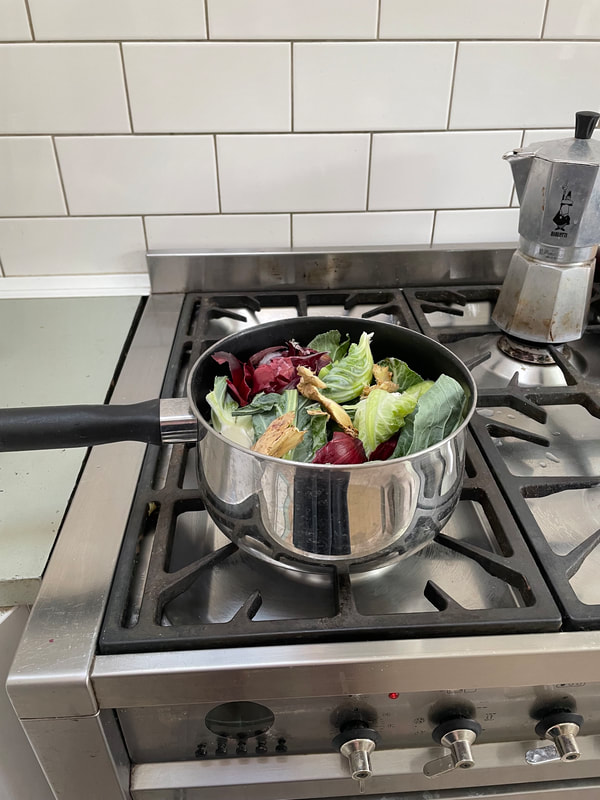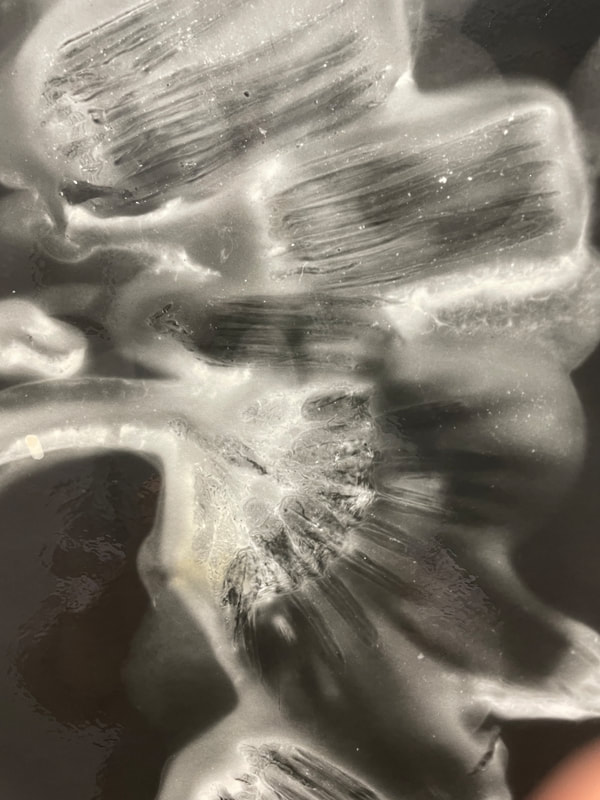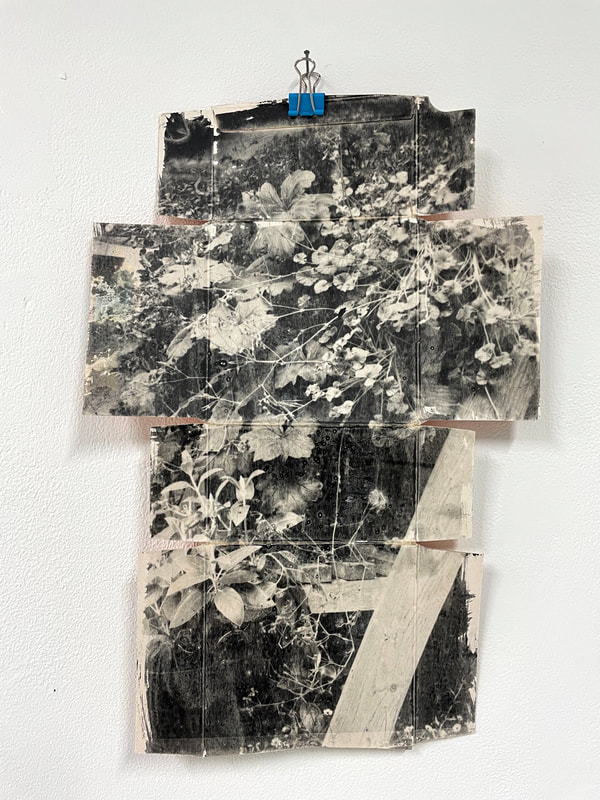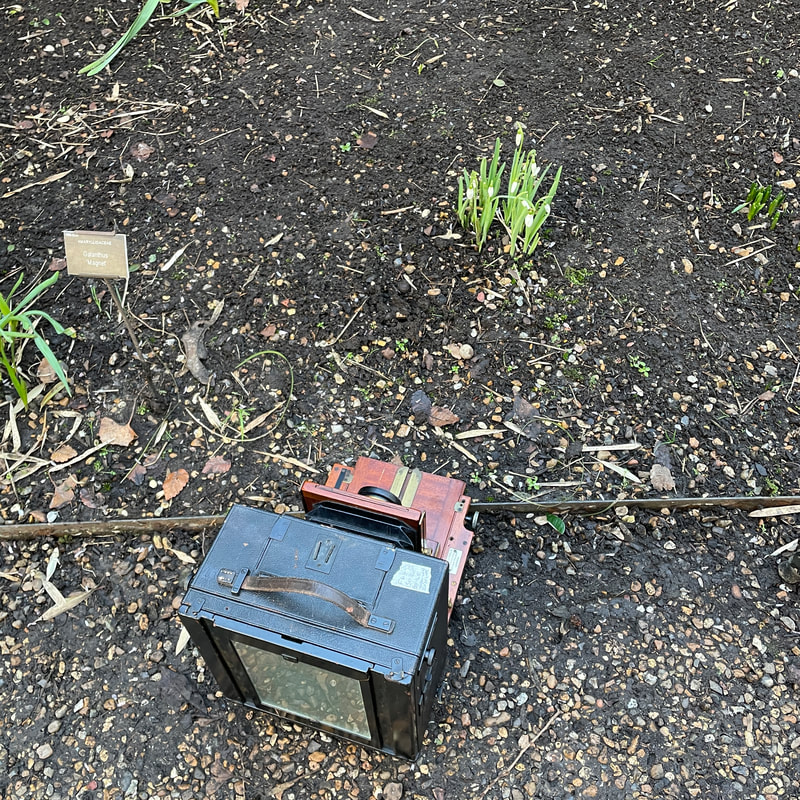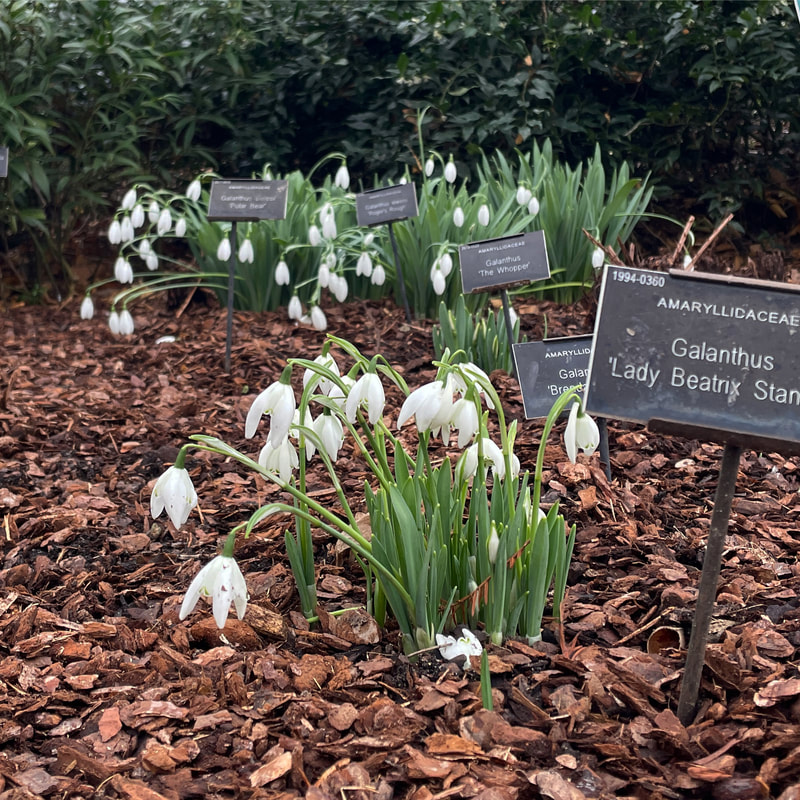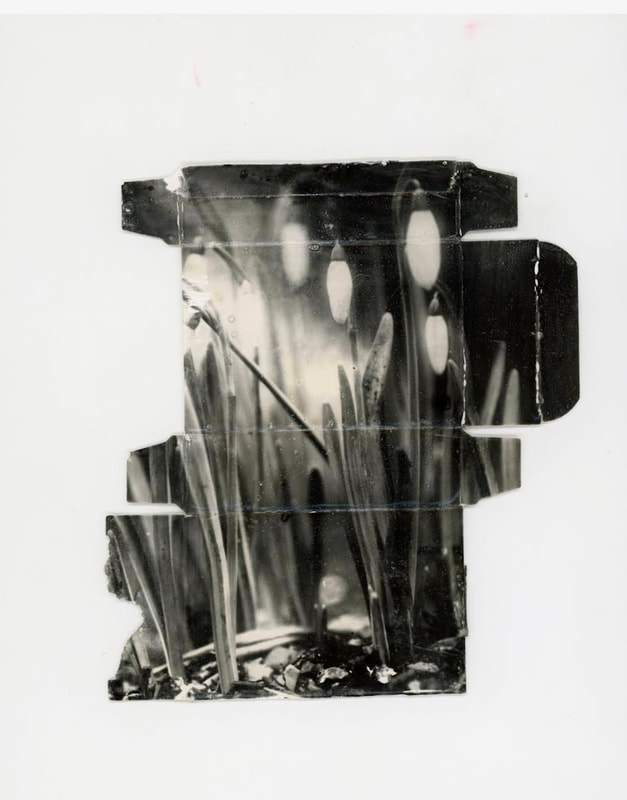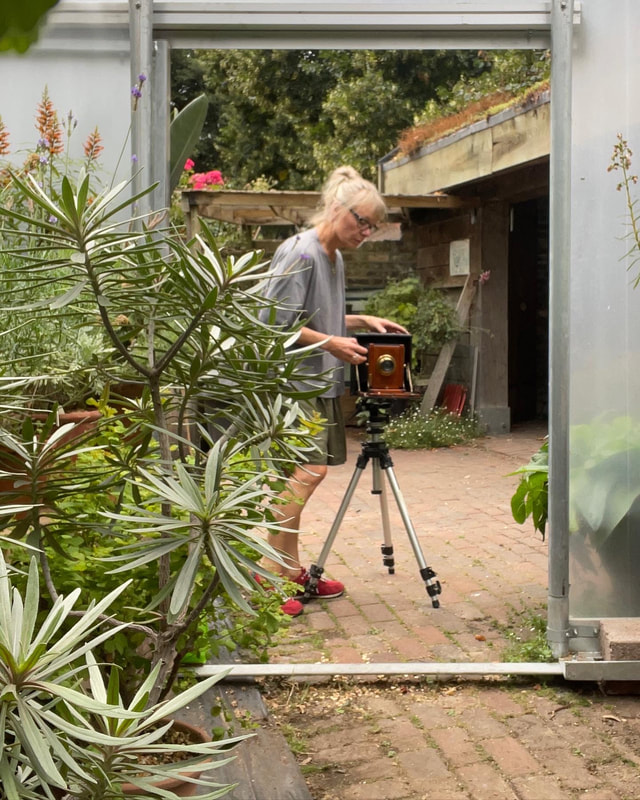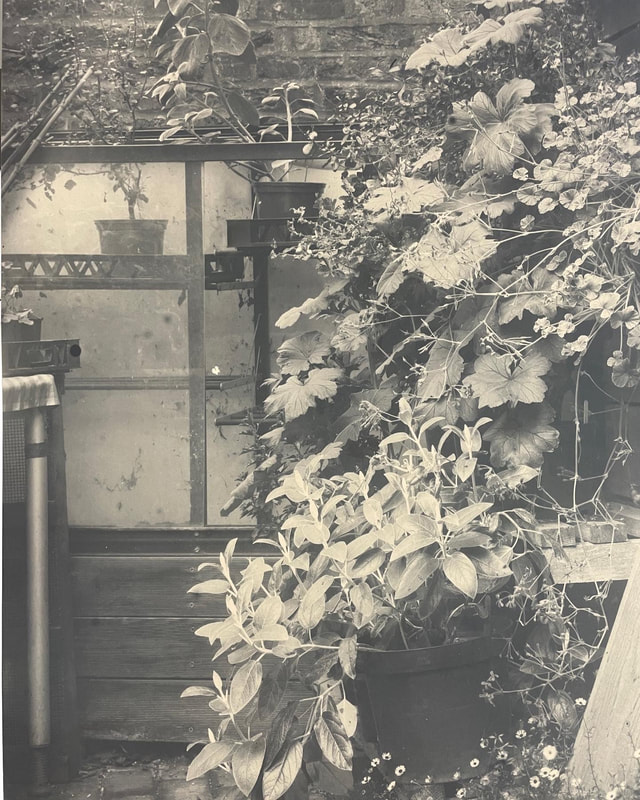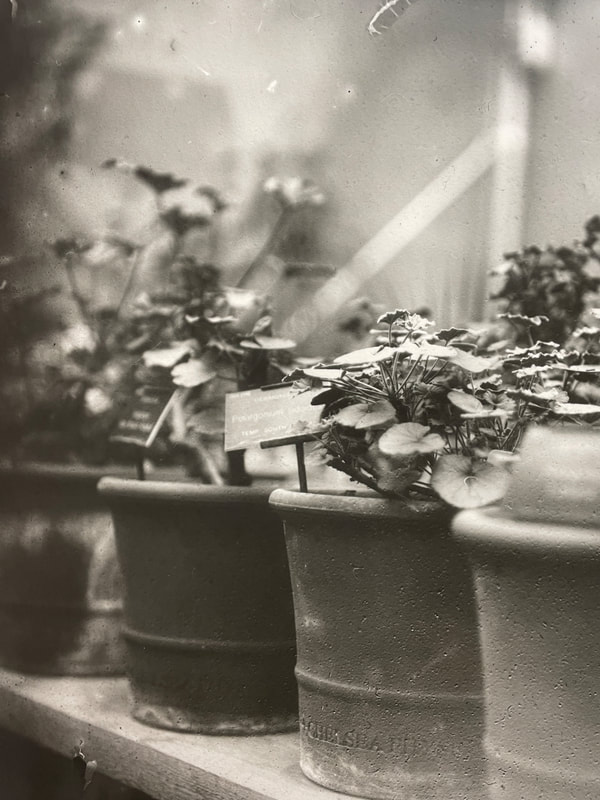Chelsea Physic Garden Residency 2022-2023
This 4 acre garden was originally set up by apothecaries 350 years ago as a medicinal garden, it continues to thrive as a centre for education, research, wellbeing and outreach. I've been fortunate to spend time here, slowly studying the plants and speaking to the gardeners, staff and visitors. The obvious focal point has been the healing plants especially those associated with memory impairment. Discovering the vast history associated with plants in relation to folklore, storytelling, the role of women and the aspects of erasure and loss in terms of colonial exploitation has provided a fertile area of research and piecing together complicated and at times contradictory narratives. Using a borrowed 150 year old Weston field camera, I've learnt to coat recycled glass or acrylic slides to replace commercial plastic based film and created recipes from compost or food waste to turn into developer to make prints in the darkroom. This process is extremely nuanced and takes the creation of an image to an even slower pace, in time with seasons, creating a breathing space to reflect on a less anthropocentric positioning in terms of conventional photographic image making. The final stages in terms of making the work more sustainable has been using recycled packaging as a substrate for printing, again returning to the domestic setting of the kitchen where the chemistry is converted into useable alternatives to commercial product. This space where unseen labour takes place, provides the by products of cooking and feeding a family with food waste products that are converted back and given a new life and value. This outcome of this residency will be shown at a variety of exhibitions throughout 2022 and 2023 with a final show at The Royal College of Art in London in the summer of 2023.
This 4 acre garden was originally set up by apothecaries 350 years ago as a medicinal garden, it continues to thrive as a centre for education, research, wellbeing and outreach. I've been fortunate to spend time here, slowly studying the plants and speaking to the gardeners, staff and visitors. The obvious focal point has been the healing plants especially those associated with memory impairment. Discovering the vast history associated with plants in relation to folklore, storytelling, the role of women and the aspects of erasure and loss in terms of colonial exploitation has provided a fertile area of research and piecing together complicated and at times contradictory narratives. Using a borrowed 150 year old Weston field camera, I've learnt to coat recycled glass or acrylic slides to replace commercial plastic based film and created recipes from compost or food waste to turn into developer to make prints in the darkroom. This process is extremely nuanced and takes the creation of an image to an even slower pace, in time with seasons, creating a breathing space to reflect on a less anthropocentric positioning in terms of conventional photographic image making. The final stages in terms of making the work more sustainable has been using recycled packaging as a substrate for printing, again returning to the domestic setting of the kitchen where the chemistry is converted into useable alternatives to commercial product. This space where unseen labour takes place, provides the by products of cooking and feeding a family with food waste products that are converted back and given a new life and value. This outcome of this residency will be shown at a variety of exhibitions throughout 2022 and 2023 with a final show at The Royal College of Art in London in the summer of 2023.
